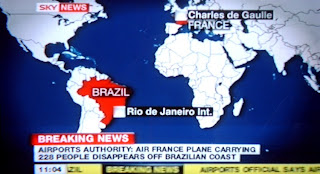British authorities have insisted that the risk to public health from the A/H1N1 virus, commonly referred to as Swine Flu, remains low despite the first death being reported on Sunday [14th June] [
BBC]. But there are mounting fears in some medical circles that increasing numbers of cases may create problems for doctors and the NHS.
In the UK, 1,320 people have so far been identified as having contracted the virus including 59 cases confirmed on Monday.
The fatality is the first reported within Europe, but British health officials have stressed it is not an indication the virus was becoming more virulent. The victim, 38 year old Jacqueline Fleming, had suffered from pre-existing health conditions, authorities have said. She had also recently given birth prematurely but health officials said the baby had not contracted Swine Flu but had subsequently died from unrelated medical problems [
BBC].
BMA warns of increasing problems
As the virus spreads across Britain, there are increasing concerns that General Practitioners (GP), also known as primary healthcare physicians or family doctors, may be subject to mounting pressures. The British Medical Association (BMA) has warned that some GPs may be forced to withdraw their services should the risks to themselves increase [
BBC].
The medical body says that GPs may be at risk not only from the virus, but also from patients angry at what they might perceive as a lack of care.
If the numbers of patients suffering from A/H1N1 increase, hospitals may also be overwhelmed by admissions, the BMA says. This in turn would leave family doctors with a dilemma as to where to send other patients, who may suffer as a result. Such situations may result in a doctor being sued, something the BMA says it is extremely concerned about.
Effectively many family doctors are self-employed and have their own insurance. And this may not cover themselves or their family if they were to die or be sued by a patient, the BMA fears.
Dr Dean Marshall, from the BMA said that doctors “will be putting their lives on the line” and that it was important that they were “properly covered if anything goes wrong.”
GPs unconcerned However, some GPs have been critical of the medical body. One GP, who preferred not to be named, told
tvnewswatch, “I had not heard this report myself since I’ve been working today [Monday], but I’m surprised the BMA should be focused on such a narrow issue of self interest.”
“I don’t care for myself. I took a Hippocratic Oath to help people to best of my ability, so as regards insurance I am not concerned,” he said. “I think they’re missing the centre of the target,” he added. “The BMA should be more focused on what can be done to keep doctors well enough to treat their patients,” the GP said, expressing surprise that the BMA should raise such issues.
If a pandemic were to occur, he said he believed doctors and their teams would work together in what he described as the “Battle of Britain spirit”.
“No one was going to sue in those days,” he said. “Britain invented the queue and people know how to wait their turn,” he added. “I’ve been a doctor for 30 years, and I’m not cynical about how the vast majority of people can work together.”
As regards to publicity, he told
tvnewswatch that his surgery had made the decision not to put up posters warning about the spread of Swine Flu. Such measures often had a negative effect, he said, and many people were suffering from “Swine Flu fatigue”. However information pamphlets were available.
Measures to protect staff and patients had been implemented, he stressed. “We do have gloves, masks and alcohol gel in stock as standard. But we have also ordered extra supplies,” the doctor added, “In addition we do take measures to reduce our own chances of getting the flu.”
If visiting patients suffering from flu-like symptoms, he said they might be asked to go to a different room and open the window before the doctor’s arrival. Even the issue of a prescription may be completed in a different room to reduce risks of contamination, he explained.
Strain on health service
The BMA has said the number of admissions to hospital will rise significantly if a pandemic takes hold, putting further strain on the National Health Service (NHS) as a whole.
For every 100 patients with flu symptoms up to four of them may require hospital admission, if there are beds available, the BMA says in a 61 page report issued to GPs.
Around 25 percent may require critical care with an average length of stay in hospital of up to ten days. The BMA also says that scientific models suggest that up to 2.5 percent of all flu victims may die.
In a recent statement, Director-General of the World Health Organisation Margaret Chan described the virus as “unstoppable”. There are also estimates that half of the UK population could contract the disease. Given the BMA’s estimate that 25 in every thousand affected could die, swine flu could account for around 750,000 deaths in Britain alone.
Already the effects of the disease have been felt with dozens of schools being periodically closed across the country as pupils contract the virus.
Meanwhile, the British government continues in its effort to stockpile flu treatments such as Roche’s Tamiflu, and Relenza, which is made by British pharmaceutical giant Glaxosmithkline.
Additionally, efforts are being made to prepare a vaccine, though it may be many months before it becomes available to the general public [
BBC].
Global threatThe World Health Organisation last week declared a global pandemic of level 6, for some an indication of the seriousness of the situation.
At least 75 countries around the world are now affected, and some have implemented more stringent health controls. Apart from Mexico, where the virus appeared to originate, Britain, the United States, Canada, Chile and Australia have shown the highest numbers of affected individuals [
Map].
However, it is not clear whether the high numbers are more down to a better system of health checks and identification. While some countries have implemented health checks at airports and even quarantine procedures for some visitors, international travel has so far been unrestricted.
Domestically, various governments have launched health campaigns to advise the public on the risks. In Britain, leaflets have been delivered to every household giving information on how the virus is spread and advising how best to protect oneself from it. There has also been a large publicity campaign launched on television and radio in an attempt to persuade people to be more careful when they sneeze.
The main advice to the public is to “catch it, bin it, kill it”, by using a tissue, disposing of it quickly and by washing hands regularly.
While there is an obvious concern from the risks of A/H1N1, so far the virus has not shown itself to be as deadly a threat as some have feared.
An estimated 12,000 people, mainly in the older age group, die every year from seasonal flu in the UK, according to the BMA. In the U.S. tens of thousands die annually from seasonal flu. But so far the entire global death rate from A/H1N1 remains well below 1,000, with the WHO confirming only 146 deaths.
Many of those affected by A/H1N1 are in a much younger age group, and some are otherwise healthy individuals. The greatest fear amongst medical experts is the virus could mutate and become ever more deadly.
In the past, pandemics have killed more than a million around the world. Between 1918 and 1919, the so-called Spanish Flu was responsible for an estimated 20 to 40 million deaths. And in more recent history the Asian Flu in 1957 and the Hong Kong Flu of 1968 killed up to 4 million between them.



